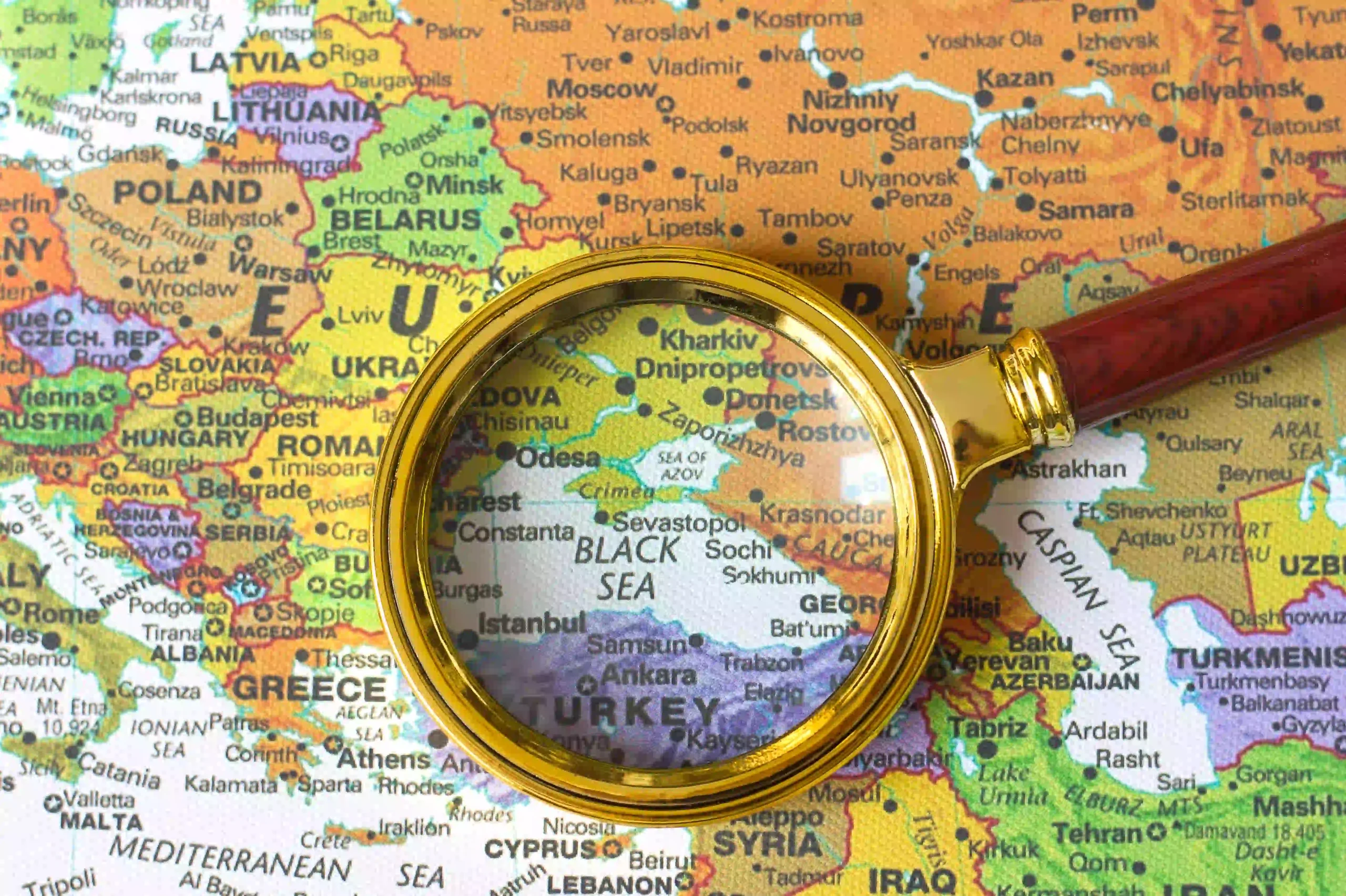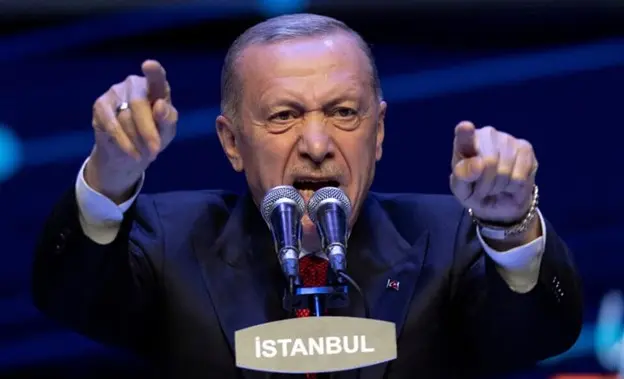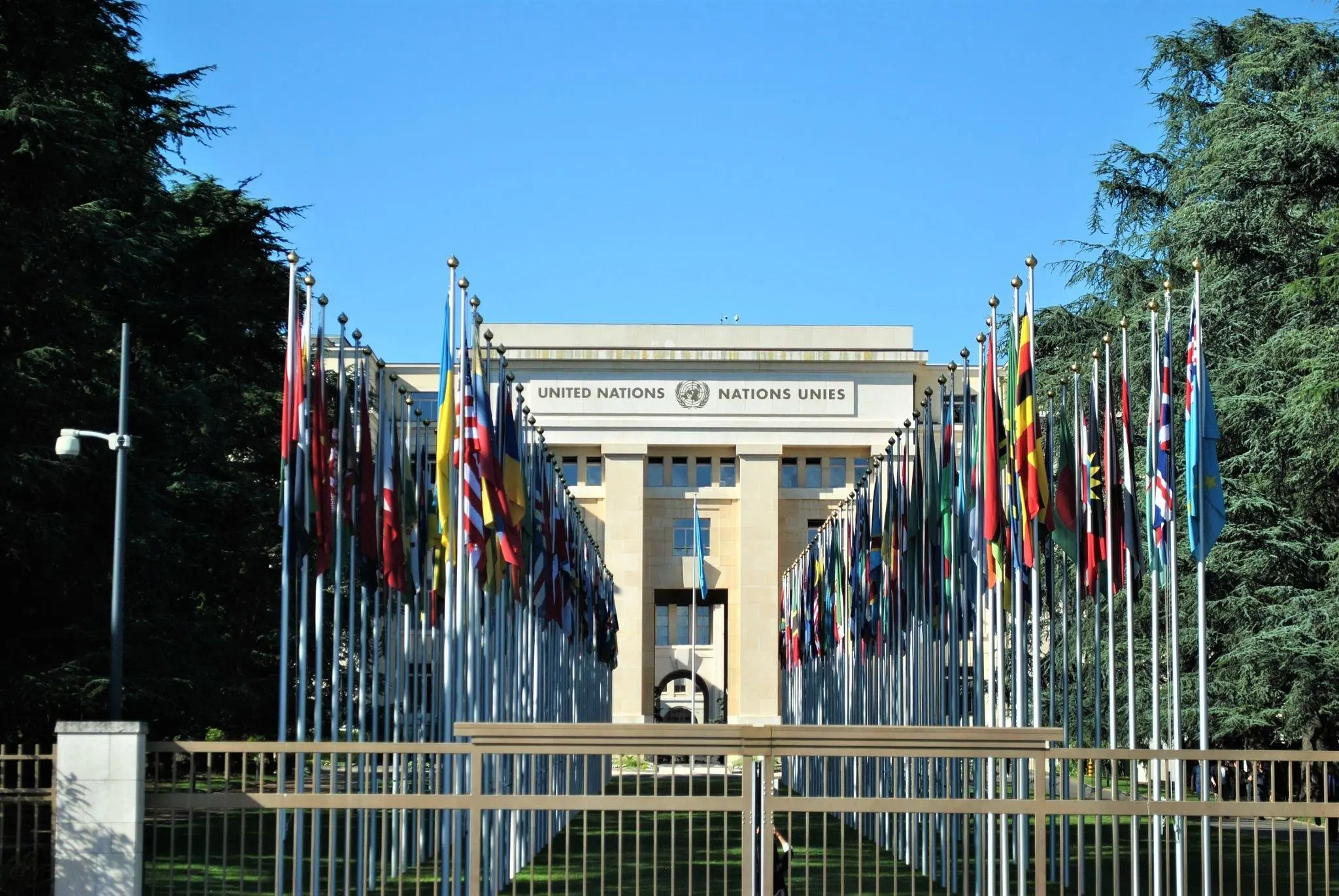The North Atlantic Treaty Organization (NATO) philosophy is based on promoting peace and stability and protecting the security of its members through a European and North American defence alliance. The alliance enjoys an "open door policy" whereby any European country willing to undertake the obligations and commitments of membership is welcome to apply for membership. Any decisions on expansion must be approved by a unanimous vote of the current 30 members. The essential feature of the alliance is Article 5 of the Washington Treaty on Collective Defence, which establishes NATO as a powerful alliance that guarantees security by the military response and protects any member state if it is attacked.
As a result of growing security concerns about Russia’s ambitions for further expansion in Europe following the special operation launched in Ukraine in February 2022, the historic decision of Helsinki and Stockholm to request membership in NATO at the alliance summit held in Madrid in May 2022, after decades of military non-alignment, stunned everyone. Nevertheless, Finland maintains its neutrality by distancing itself from joining such alliances to maintain its relations with Russia, while Sweden remains outside NATO for ideological reasons.
Because of the historical circumstances in Europe, it was thought that the Nordic duo would be swiftly welcomed as members of the defence coalition. However, Türkiye, one of the alliance’s most important strategic and military members, blocked NATO’s attempt to expedite Finland and Sweden’s application, claiming that their participation would turn the alliance countries’ territory into a “refuge for representatives of terrorist organisations.”
Finland quickly reached an agreement with Türkiye to approve its membership, raising concerns that Sweden would be left behind at this time , especially given Türkiye’s adherence to its prevarications with Sweden and its continued obstruction of Stockholm’s request.
Based on the previously mentioned points, the analysis seeks to identify the strategic significance of Sweden and Finland to Russia and NATO and the reasons behind Türkiye’s obstruction of Sweden’s accession request to determine the future of Sweden’s membership in the alliance in light of recent developments.
Russia and NATO
The creation of the North Atlantic Treaty Organization (NATO) was associated with the Cold War, as the West formed this bloc to counter Russian influence in general and Europe in particular. The alliance was established in 1949 by the United States of America and several European countries to provide collective defence against the threats of the Soviet Union during the Cold War period. Since then, the alliance has expanded to include 30 member states and developed into a military and political institution that aims to protect and enhance security and stability in Europe and the world.
Even after the collapse of the Soviet Union, NATO’s relationship with Russia remained tense for the most part, as the alliance always sought expansion through four successive waves that began in 1991, when it included three Eastern European countries, namely the Czech Republic, Hungary, and Poland, and then in 2004, when the alliance included seven countries, the majority of which are from Russia’s strategic neighbours. This worried Russia because it saw the NATO expansion as a threat to its national security, prompting it to intervene in Georgia through a quick battle in 2008, after which NATO’s third wave of expansion began with the accession of Croatia and Albania in 2009, increasing tensions in relations. Moreover, despite NATO’s offers of cooperation and partnership to Russia, relations between the two sides deteriorated sharply following the Ukrainian crisis in 2014, when Russia annexed Crimea, sparking a new wave that almost resulted in Ukraine joining the alliance, prompting Russia to launch its expanded military operation in 2022, which is still ongoing and has ramifications for Europe and the world.
Finland and Sweden's Motivations for Joining NATO
Following Russia’s annexation of Crimea in 2014, NATO, Finland, and Sweden increased their collaboration efforts, and the two nations signed a Host Nation Support Agreement with the alliance and gained opportunities to enhance their partnership at NATO’s Wales Summit in September 2014 of that year. Moreover, the Russian military operation in Ukraine in 2022 also shattered many old assumptions, leading to a shift in the previous situation and an increase in citizens’ attitudes in Finland and Sweden to support their governments’ efforts to gain NATO membership, which was bolstered by the fact that Helsinki and Stockholm are close to NATO. This was notably evident in 2014, when both countries sent soldiers to Afghanistan, participated in NATO manoeuvres, exchanged intelligence information, and attended alliance meetings. Nevertheless, because the two countries are concerned about Russian military activities in the region and substantial Russian military exercises near their borders, they seek to capitalise on Article Five of the Alliance Charter.
The Nordic Duo in Terms of Strategic Importance
Finland and Sweden are strategically important to Russia and NATO because they are positioned in a geo-strategically critical area that connects Europe and Russia.
Finland and Sweden’s Strategic Importance to Russia
From a geopolitical standpoint, Finland and Sweden are essential for Russia since they are located on Russia’s northern borders, a critical area for Russian defence and the growth of commercial links with Europe. As a result of their significance, Russia provided Finland and Sweden incentives to preserve their neutrality and thwart their ambitions to join NATO. These incentives included shared infrastructure and increasing energy-related cooperation, such as the Nord Stream pipeline that carries natural gas from Russia to Germany via the Baltic Sea. As more illegal immigrants attempt to enter the European Union through the two countries, the security incentive has also increased by enhancing cooperation between Russia and the two nations, conducting joint military drills, taking precautions against illegal immigration, exchanging intelligence, and working together to fight terrorism.
The end of Russia’s hold over the Baltic logic and depriving it of access to the Baltic Sea is signalled by Sweden and Finland’s admission to NATO. Given that Sweden has the most significant marine domain in the Baltic Sea and unfettered access to the North Sea via the city of Gothenburg, Russia will be subject to substantial maritime pressure. Moreover, Sweden’s relevance grows due to the island of Gotland, 260 kilometres from the Russian naval facility in Kaliningrad, effectively isolating this naval base. Furthermore, Sweden and Denmark control the Öresund Strait, the only exit from the Baltic region. The Russian forces’ position is similarly militarily exposed because Finland shares a 1,340-kilometer-long land border with Russia. In addition, Helsinki is 260 kilometres from St. Petersburg, making it an easy target for Finnish artillery.
Finland and Sweden's Strategic Importance to NATO
Even though their militaries are relatively small, their strategic relevance to NATO outweighs their military equipment. The Finnish soldiers are primarily trained to fight any Russian military onslaught and have Europe’s most powerful artillery. In the case of a Russian attack, Finland can mobilise thousands of its citizens quickly. In addition, Finland and Sweden are vital locations for US and NATO intelligence activities against Russia.
The accession of the Nordic duo will enhance the security equation for the Baltic states and prevent Russia from realising its dreams of controlling the Finnish and Swedish islands in the Baltic Sea, especially Jutland, and using them as bases to launch attacks on its lands. It will also enhance NATO’s deterrence capability in the Arctic and add a new strategic dimension to the region, where Russia has invested heavily in commercial and military infrastructure. Furthermore, the integration of the Finnish land and air forces, which will utilise the F-35 in the future, as well as Sweden’s naval, air and defence industrial capabilities, would add a crucial military dimension to the Baltic region.
Turkish Motives for Blocking the Accession of the Scandinavian Duo
Several variables influence Türkiye’s NATO strategy, including bilateral relations between Türkiye and the alliance’s member states, particularly on security and defence concerns. For example, Türkiye faces serious security concerns in the region due to terrorist activity and regional conflicts but receives little response from NATO members. As a result, the Turkish opinion on the approval of the Nordic duo’s admission varies as follows:
Sweden
Regarding the grounds for Türkiye’s opposition to Sweden’s membership, numerous factors are complex and interrelated, and they can be summarised as follows:
Avoiding past mistakes:
Following the Turkish invasion of Cyprus in 1974, Greece left NATO. Six years later, Greece indicated its intention to rejoin the alliance and sought Türkiye’s consent, as Türkiye raced to accede to Greece’s return with no conditions following the 1974 Cyprus War. However, Athens and its Cypriot allies are currently regarded as a significant impediment to Türkiye’s bid to join the European Union. As a result, Greece rejected the United Nations’ plan to unify Cyprus in 2004. Moreover, territorial conflicts between Türkiye and Greece persist in the Aegean and Mediterranean Seas, making it unlikely that Türkiye will allow Sweden to join NATO unless their existing differences are resolved. This may necessitate a broad and public commitment from Sweden to stand in conjunction with Türkiye against Kurdish groups, which Türkiye may find appealing.
Lifting Türkiye’s arms embargo:
Kurdish militants affiliated with the Kurdistan Workers’ Party (PKK) have played an essential role in the war against the Islamic State (Daesh) in Syria, owing to their military experience and capacity to tackle the extremist group. They got support from the United States and Europe, especially Sweden, which infuriated Türkiye because it considers the Kurds a historical adversary and believes that equipping them advances their separatist goals in Syria and supports their calls for separation from Türkiye. Western governments, on the other hand, have been staunch supporters of Kurdish fighters, which led to a deterioration in relations between Türkiye and the West when Türkiye launched operations against the Kurdish People’s Protection Units, which were condemned by the US and the EU. Furthermore, numerous European countries have prohibited arms sales with Türkiye. Ankara has urged Sweden and Finland to provide unambiguous security guarantees and abolish Türkiye’s arms ban. In this environment, Türkiye believes that the expansion of NATO to include other nations that restrict arms transactions with Türkiye will be rejected.
Countering the Kurdish Tide:
With an estimated 30 million people, the Kurds are the world’s most significant ethnic minority without a nation. The group is recognised for its united and autonomous language and culture. Kurds comprise roughly 20% of Türkiye’s overall population of 84 million. Some Kurds hold critical positions in Turkish society. However, they confront discrimination and repression from the Turkish government through the Kurdistan Workers Party, a Kurdish separatist movement battling Turkish forces periodically since the 1980s. It aspires to build an independent state in Türkiye and the surrounding countries. The party is classed as a terrorist organisation in Türkiye and several other countries, and Ankara requires that any new contender for NATO membership recognises its concerns about Kurdish organisations, which have become a significant cause of friction inside the alliance. It also asks that Sweden and Finland openly reject the PKK and its affiliates before they may join NATO.
Attempting to build internal support as elections approach
In light of Turkish President Recep Tayyip Erdogan’s attempts to extend his term as the May 2023 election approaches and his efforts to gain more support from his nationalist supporters to do so, Erdogan is up against a coalition of six parties, as well as growing public anger over the February 2023 earthquake. The earthquake claimed the lives of around 46,000 people, injured thousands more and killed over 7,000 more over the border in Syria. This is in addition to the ensuing investigations and controversies stemming from corruption charges brought up in the aftermath of the earthquake. Furthermore, with his approval ratings plummeting as a result of the country’s faltering economy, spiraling inflation, the rising cost of living crisis, and sharp currency depreciation over the past year, Erdogan seeks to demonstrate his global significance to Turkish voters while also attracting the support of nationalist and Islamist voices. In this scenario, opposition leader Kemal Kilicdaroglu of the Republican People’s Party leads Erdogan in opinion polls, pushing the latter to deploy populist and nationalist language to woo nationalist-Islamist voters and rally his supporters once more.
Pressure Card on NATO Members
The Turkish president is attempting to leverage his nation’s alliance membership to put pressure on the US and its Western allies to make concessions on several issues, including the reactivation of the US-led F-35 fighter jets programme, from which Türkiye was expelled after purchasing the Russian S-400 missile defence systems. Additionally, Türkiye is looking to update its current fleet of F-16s and buy a fresh batch of aircraft. Other requests can be made include lifting the tacit embargo on military sales to Türkiye, making accommodations about Türkiye’s application to join the EU, and expanding financial help for Türkiye’s more than 3.7 million Syrian refugees.
Finland:
Türkiye’s relations with Finland and Sweden are different from one another since Finland has a smaller Kurdish population than Sweden does. Hence Türkiye’s stance on Finland joining NATO is less extreme. In addition, Finland has designated the PKK a terrorist group, making the conflict with Türkiye less problematic than the one with Sweden. However, the foreign policies of the two countries are comparable. Finland, however, joined Sweden and other EU nations in 2019 in stopping arms supplies to Türkiye due to Turkish military actions against Kurdish forces in Syria. On March 17, 2023, the Turkish president put an end to months of diplomatic stalling and asked Parliament to swiftly support Finland’s application to join NATO, declaring that Türkiye was only giving its approval after Finland took actions to keep its promises to combat what Ankara views as terrorists and to lift the ban on exporting its defence industry to Türkiye.
Finally, based on the preceding, relations between Türkiye and Sweden have recently been strained due to political and human rights conflicts between the two countries. Türkiye, for its part, tries to advance its interests and capitalise on Sweden’s NATO membership to settle old scores and advance its interests by putting pressure on Sweden and the West to resolve sticky issues at the expense of Sweden’s membership. This was one of the factors upon which Türkiye decided to accept Finland’s NATO membership without Sweden. Therefore, if Turkish President Recep Tayyip Erdogan is dissatisfied with Sweden’s response to his requests, NATO may experience a deadlock. Erdogan will try to boost his dwindling domestic popularity and take advantage of the chance to draw attention to the Kurds, a subject that deeply concerns him. Türkiye is also asking for concessions about the F-16 agreement and access to the US F-35 project.
It is anticipated that Türkiye won’t block Sweden from joining NATO, although it does need some concessions from Sweden as payment. These concessions include removing the arms embargo against Türkiye and gaining security assurances regarding Kurdish assistance. However, it might be difficult for the Swedish government to offer significant concessions to Erdogan, as was the case in Finland, due to the impending Swedish elections in September, for fear of losing support at home.
References
“10 Things You Need to Know about NATO.” NATO, March 9, 2023. https://www.nato.int/cps/en/natohq/126169.htm
“Finland Approves Military Sales to Turkey amid NATO Row.” The Defense Post, January 25, 2023.
“Turkey Lifts Its Block on Letting Sweden and Finland Join NATO.” The Economist. The Economist Newspaper, June 28, 2022. https://www.economist.com/europe/2022/06/28/turkey-lifts-its-block-on-letting-sweden-and-finland-join-nato?utm_medium=cpc.adword.pd&utm_source=google&ppccampaignID=18151738051&ppcadID=&utm_campaign=a.22brand_pmax&utm_content=conversion.direct-response.anon
Bayer, Lili. “Turkey, Hungary to Approve Finland’s NATO Membership.” POLITICO, March 17, 2023. https://www.politico.eu/article/turkey-approve-finland-nato-membership-sweden-edrogan/
Brennan, David. “Finland Leaves Sweden behind in Race to NATO Membership.” Newsweek, March 18, 2023. https://www.newsweek.com/finland-leaves-sweden-behind-race-nato-membership-1788463
Forsberg, Robin, Janna Öberg, and Aku- M. Kähkönen. “Implications of a Finnish and Swedish NATO Membership for Security in the Baltic Sea Region.” Wilson Center, June 29, 2022. https://www.wilsoncenter.org/article/implications-finnish-and-swedish-nato-membership-security-baltic-sea-region
Karadsheh, Jomana, and Isil Sariyuce. “Why Is Turkey Causing Problems for Finland and Sweden’s Plans to Join NATO?” CNN. Cable News Network, May 19, 2022. https://edition.cnn.com/2022/05/18/europe/turkey-nato-finland-sweden-cmd-intl/index.html















Comments